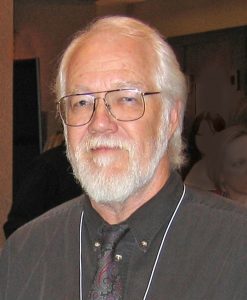
Professor Emeritus Donald P. Cox passed away October 26, 2022. He was 79. A plasma astrophysicist, Cox contributed many years to research in his scientific field, to students with whom he worked, and to the department’s teaching mission.
Cox came to the UW–Madison physics department in 1969 with the promise of a faculty position a year before receiving his PhD from the University of California, San Diego. Except for an extended leave of absence at Rice University while his wife completed her degree in Houston, Cox spent his entire professional career here.
He arrived in the era of a cold and quiet interstellar medium and a newly discovered and unexplained soft X-ray background. For the next four years, he and his students did much of the original work on X-ray plasma emissions from supernova remnants, combining a broad physical insight into global processes with laborious and careful compilations of the necessary atomic physics. At this time, astronomers were still searching for the source of the X-ray background, having apparently eliminated all viable production mechanisms.
Cox looked beyond his remnants and realized that the uniform cold medium that he had been producing them in was incompatible with their collective effects on it. He proceeded to turn astronomy’s conventional picture on its head, proposing the hot, violent, and dynamic picture of the interstellar medium that is taught today as a matter of fact. His subsequent work was marked by a lack of respect for convention and a desire to apply basic physics principles to the complexities of interstellar dynamics. His insight that star formation must have a negative feedback effect on future star formation is today a central tenet of research on galactic evolution.
In following his own path, Cox developed an international reputation as the most original thinker in his field. His legacy of fundamentally new ideas is supplemented by two generations of his students who continue his work.
The other side of Cox’s career at Wisconsin was his dedication to teaching, attested to by his many years as leader of the department’s undergraduate program, his election as a fellow of the Teaching Academy, and numerous unsolicited testimonials from students. His interest in teaching was clearly fueled by a desire to share his own joy and fascination with the ideas of physics. He spent hours with pencil and paper, solving a problem that had nothing to do with his research, just to show that some seemingly complex behavior can be derived from basic principles. He did this out of personal curiosity, but his willingness to share his enjoyment of the result was well known.
Modified from Department Archives, with special thanks to Prof. Dan McCammon for contributing to this piece
Please visit the department’s tribute page to Don Cox to submit and/or read stories from Don’s colleagues.